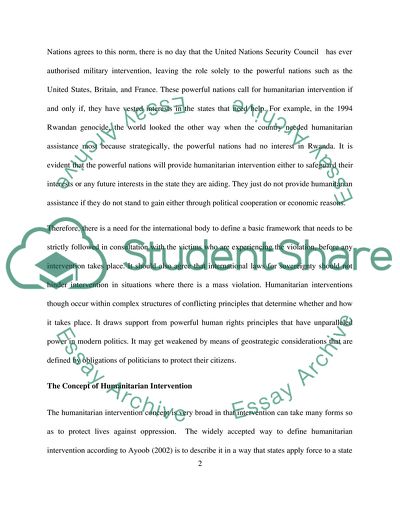Cite this document
(“Humanitarian intervention only occurs when it supports the interests Essay”, n.d.)
Humanitarian intervention only occurs when it supports the interests Essay. Retrieved from https://studentshare.org/social-science/1687136-humanitarian-intervention-only-occurs-when-it-supports-the-interests-of-the-powerful-discuss
Humanitarian intervention only occurs when it supports the interests Essay. Retrieved from https://studentshare.org/social-science/1687136-humanitarian-intervention-only-occurs-when-it-supports-the-interests-of-the-powerful-discuss
(Humanitarian Intervention Only Occurs When It Supports the Interests Essay)
Humanitarian Intervention Only Occurs When It Supports the Interests Essay. https://studentshare.org/social-science/1687136-humanitarian-intervention-only-occurs-when-it-supports-the-interests-of-the-powerful-discuss.
Humanitarian Intervention Only Occurs When It Supports the Interests Essay. https://studentshare.org/social-science/1687136-humanitarian-intervention-only-occurs-when-it-supports-the-interests-of-the-powerful-discuss.
“Humanitarian Intervention Only Occurs When It Supports the Interests Essay”, n.d. https://studentshare.org/social-science/1687136-humanitarian-intervention-only-occurs-when-it-supports-the-interests-of-the-powerful-discuss.


